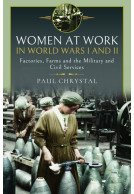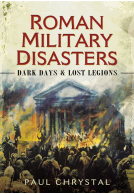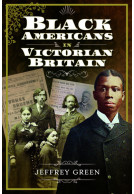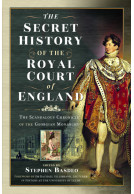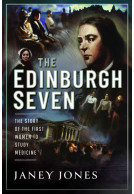The History of the World in 100 Pandemics, Plagues and Epidemics (Hardback)
Imprint: Pen & Sword History
Pages: 416
Illustrations: 40 mono illustrations
ISBN: 9781399005425
Published: 11th August 2021
(click here for international delivery rates)
Need a currency converter? Check XE.com for live rates
| Other formats available - Buy the Hardback and get the eBook for £1.99! | Price |
|---|---|
| The History of the World in 100… ePub (10.3 MB) Add to Basket | £6.99 |
This revelatory book charts and explains the impact and consequences of successive pandemics, plagues and epidemics on the course of world history – all through the lens of today’s ongoing global experience of COVID-19. Ranging from prehistory to the present day, it first defines what constitutes a pandemic or epidemic then looks at 20 guilty diseases: including cholera, influenza, bubonic plague, leprosy, measles, smallpox, malaria, AIDS, MERS, SARS, Zika, Ebola and, of course, COVID-19. Some less well-known, but equally significant and deadly contagions such as Legionnaires’ Disease, psittacosis, polio, the Sweat, and dancing plague, are also covered.
The book is ordered chronologically. Each chapter features an explanation and description of epidemiology, sources and vectors, morbidity, mortality, governmental response and reaction, societal response and impact as well as psychological issues where known - and the political, legal and scientific consequences it had or has for each locus at a local and international level. In short – the book explains how each of the events both made and influenced subsequent history in its own way, particularly how each shaped future medical and scientific research and vaccine development programmes. It also examines myths about infectious diseases, the role of the media and social media. Perhaps most importantly, Paul Chrystal asks what lessons have been learnt. Will we be better prepared next time? Because, if one thing is sure, there is going to be a ‘next time’.
This was an interesting take, looking at 20 of the worst diseases to change the course of human history, from ancient times to the present. Definitely an interesting resource, especially since we are now all COVID-19 experts.
NetGalley, June Lee
Recent years have seen an incredible number of publications on epidemics, pandemics and other ass-health events in history. This book offers materials for reflection (and possible future actions) on managing such episodes by learning from the past. It also constitutes an encyclopaedia of such phenomena with clearly identified chapters. As a result, this sum of information is both a broad compendium and an assemblage of micro-narratives which readers can peruse independently. This book should be in every library.
Alain Touwaide, Ronin Institute for Independent Scholarship, New Jerseyendent Scho
Pandemics are nothing new. The 100 events summarised here are not an exhaustive list but they include all the best known plagues in history plus accounts of several of the endemic diseases which were major killers in the past, such as tuberculosis.
Historical Novels Review
This is still a mine of information on a topic which until recently was a niche interest.
I am not sure what it says about me, reading a book like this in the middle of a pandemic, but it was very interesting reading indeed.
NetGalley, Monica Mac
This is a very comprehensive and well-researched book into all the pandemics etc of history right up until the current COVID pandemic. It is written from a British perspective and being Australian, it was fascinating to see the differences between the UK's handling of the pandemic and our own. With some things though, hindsight is 20/20 and in the beginning, I think most governments struggled to get their collective heads around what to do for the best. I do, however, think a lot of the Asian countries ran rings around us!
When I read about the various plagues that have come and gone through the ages, I wonder again at the good fortune that allowed my ancestors to come through it all. It sounds horrendous, having to deal with these nasty diseases without a vaccine, or even basic knowledge, in sight.
Well worth reading!
4.5 stars from me.
As a retired nurse and public health historian I particularly enjoyed reading about the plague though the centuries. It details the differences with regards to level of understanding at the times ot outbreak.
Alison Wall - Local history/ nursing and public health groups
I would recommend this book to public health students and practitioners. The text provides an excellent overview of diseases over the centuries and the impact they have had on society. It helps to put the present day into focus as we learn to live with Covid 19 and consider how we will manage the next pandemic. As we know and have to accept that another pandemic will inevitably strike at some point in the future.
Timely, topical, informative, exceptionally well written and impressively presented, "The History of the World in 100 Pandemics, Plagues and Epidemics" is a strongly recommended addition to community, college, and university library World History and Health/Medicine collections.
Midwest Book Review
Read the full review here
"An excellent read."
Casemate Magazine
Rating: 5 out of 5 stars
NetGalley, Morris Morgan
I can’t think of a more timely book! This was a fascinating look at the history of viruses and diseases that have caused mass casualties to humankind. It’s extremely thorough and presents facts without being dry. It feels strange to say I enjoyed it, but I did. While all still horrific, including what we are currently living through, the more we understand the better equipped we are to deal with what may come.
The reason I gave the book 4.5 stars was because he talked about COVID-19, with a focus on UK. The pandemic is not over and, as it is with everything, depends on what you are looking at or how you present things.
Coffee and Books
Read the full review here
This is one very intriguing book. If you are a history fanatic like I am then this one is right up your alley. It has a great deal of background and other information about history and the plagues and pandemics that blighted the world through out time. I thought this was a very comprehensive guide to all things plague and pandemic. I definitely recommend this book.
NetGalley, Annalisa Alberti
This timely book is an excellent historical chronicle of the pandemics and epidemics that have plagued mankind. The author, who has a background in medical publishing and education and a keen interest in history, has produced a highly readable account and his extensive research has placed these diseases in their historical contexts. The references at the end of each chapter provide further reading material for interested readers and there is a comprehensive index. The book will appeal to medical and healthcare professions as well as to lay readers worldwide.
Hektoen International Journal - Dr Arpan K Banerjee
Read the review here
Rating: 5 out of 5 stars
NetGalley, Tara Keating
Probably not a great idea for me to read this during a pandemic, but I’ve got to admit I’ve found the plagues and pandemics in the past interesting (never imagined would live through one) This is a well written book on pandemics, plagues and epidemics in history. It is shows the effects these plagues have on people and asks what lessons if any we can learn from them. I particularly liked the details about the measures taken to prevent the spread of epidemics especially interesting, for example, the origins of quarantine, social distancing and lockdowns. It’s a really well researched book, one I can recommend thoroughly.
This is a brilliant and well researched book. Looking at the history of the world major health outbreaks; including how they were dealt with. This book really opened my eyes to how bad pandemics spread, how wide spread and how very little is ever learnt to protect from further outbreaks.
NetGalley, Claire Lavin
I loved learning about the history of the world through a different outlook I found it very informative and extremely interesting. I couldn't put it down.
It finishes by looking at covid 19 and how different countries dealt with the pandemic showing how ill prepared the uk actually was.
So much praise to the author and publishing team for producing such an interesting and informative book. It was a pleasure to read it.
I would give the book 5 stars because it’s job, it was well written and was to give an overview and detail, if you want to know more about particular pandemics then you would have to go into further research. If I ever get to go time travelling, I’m taking some soap and clean water with me.
UK Historian
Read the full review here
Rating: 5 out of 5 stars
NetGalley, Lional Jones
This is a well researched book on pandemics, plagues and epidemics that have afflicted mankind throughout history. It is set out in alphabetical order showing the effects these plagues have on people and asks what lessons if any we can learn from them. The author Paul crystal covers all pandemics in his book as well as modern ones that afflict us now.
This was a comprehensive and well-researched history of devastating illnesses since Neanderthal times. I don't think that Paul Chrystal missed anything out here!... I decided to concentrate mostly on the accounts which especially interested me, such as the plague in England and Australia, the sweating sickness and the Spanish Flu. Of course, his chapter on coronavirus is fairly up-to-date and interesting. I found the history of measures taken to prevent the spread of epidemics especially interesting, for example, the origins of quarantine, social distancing and lockdowns.
NetGalley, Lisa Sanderson
He has an excellent list of suggestions for preparing for epidemics for public policy makers. Let's hope that they study his book.
This book is a detailed and factual account of the major health pandemics, plagues and epidemics in the history of mankind, told in chronological order.
NetGalley, Susana Rocha
The author did an amazing research job, as you can tell by the references interspersed throughout the text, giving us a very informative read.
Rating: 5 out of 5 stars
NetGalley, Susan Johnston
Whilst it may not be the wisest thing to read during a pandemic, it certainly was an informative read. The author has gone back to ancient, really ancient, times to document the worst of the lot. It is not a light read although it could be dipped into in manageable bites, if desired. It is chock full of well documented information in a readable format.
It also shows how much humans have learned over the millennia and how little humans have learn. More to the point, it often takes humans a very long time to figure things out, if indeed they do. Many of the same maladies pop up again and again while heads were scratched at the time and lesson learned forgotten quickly. It does prove, however, sometimes when one bright light figures out a crucial point, things can improve greatly.
Thanks to improved hygiene, cleaner water supplies, and medical care some horrible illnesses have been eliminated, or prevented. Vaccines have made an enormous difference in the quality of life for those who have benefitted from them. However, our current situation, highlights one of the biggest barriers to the eradication of many diseases- human nature. There will always be those who refuse to follow. They either forget or do not believe or learn from previous lessons.
Reading about the long COVID or the lingering effects of COVID on those who have had it but survived makes me realize how little some people have learned.. As the child of a parent who had polio, I can attest to the long lasting issues the victim must bear. We can only hope that the dormant remnants of COVID are not as life altering as post-polio syndrome.
Rating: 5 out of 5 stars
NetGalley, Lisa Konet
Wow! This was comprehensive, detailed and factual of the major pandemics, plagues and epidemics since the Neandrathals. Yes, this book goes that far back to B.C. time. The amount of research that went into this book was off the scale, but I appreciated a glimpse into each disaster. Obviously, there was a lot of discussion on the novel vius, Covid-19, and I liked all the different tidbits, observations and speculation that was mentioned.
I do agree there needs to be some organization/people globally that has a task-force for pandemics/epidemics/plagues and the issues financially. The book said, "why would anyone donate a lot of money on something that is uncertain, when you can put it towards cancer patients/researching." (paraphrased). This book said also, "Once the morbidity/mortality for Covid-19 gets to a normal, unfortunately, there will most likely be another pandemic that follows shortly. It will happen." (paraphrased).
I think every scientist and government official globally needs to read this and realize events like this will not go away. Just because there are multiple vaccines for Covid-19, there is a global population who will never receive it because of location/finance or because they will not (anti-vaxers). This population is part of the issue why there may be another pandemic that follows quickly behind in the aftermath of coronavirus aka the variants or something worse.
Highly recommended read. It was not easy reading but fascinating and necessary AF.
Rating: 5 out of 5 stars
NetGalley, Katherine Hartley
Paul Chrystal’s book takes us on an informative journey through the many pandemics, plagues and epidemics this world has seen in its history. In essence, it examines how previous contagions have shaped the world we live in today and discusses the lessons we need to learn if we are to be better prepared for the next “event”.
“Disease,” he says, “is a constant in human civilisation,” and has been “our lethal and unwelcome companion over the last 5000 years.” It is fair to say, then, that Covid-19 is simply another bad day at office. It isn’t the first pandemic this world has seen, and it certainly won’t be the last. Chrystal’s book makes that point loud and clear.
Packed full of detailed analysis and statistics, it is a must-read for students and experts alike, and reading it through the lens of our current battle with COVID-19 makes it all the more poignant.
This was an interesting read on the different plagues and pandemics that have swept through the world. It started with the Neolithic Age and moved forward to present day, where we are currently dealing with the Covid-19 pandemic.
NetGalley, Rebecca Hill
I loved the history and the information that was shared, and overall felt it was a great read! This is one that I am going to be recommending for students in history and social geography courses.
About Paul Chrystal
Paul Chrystal has been history advisor to York visitor attractions, writing features for national newspapers, and broadcasting on BBC local radio, on Radio 4’s PM programme and on the BBC World Service.
He is contributor to a number of history and archaeology magazines and writes features for national newspapers. He is author of the best-selling A History of Britain in 100 Objects (2022). His books have been translated into Chinese and Japanese.
He is author of Factory Girls: The Working Lives of Women and Children published by Pen & Sword in 2022.










